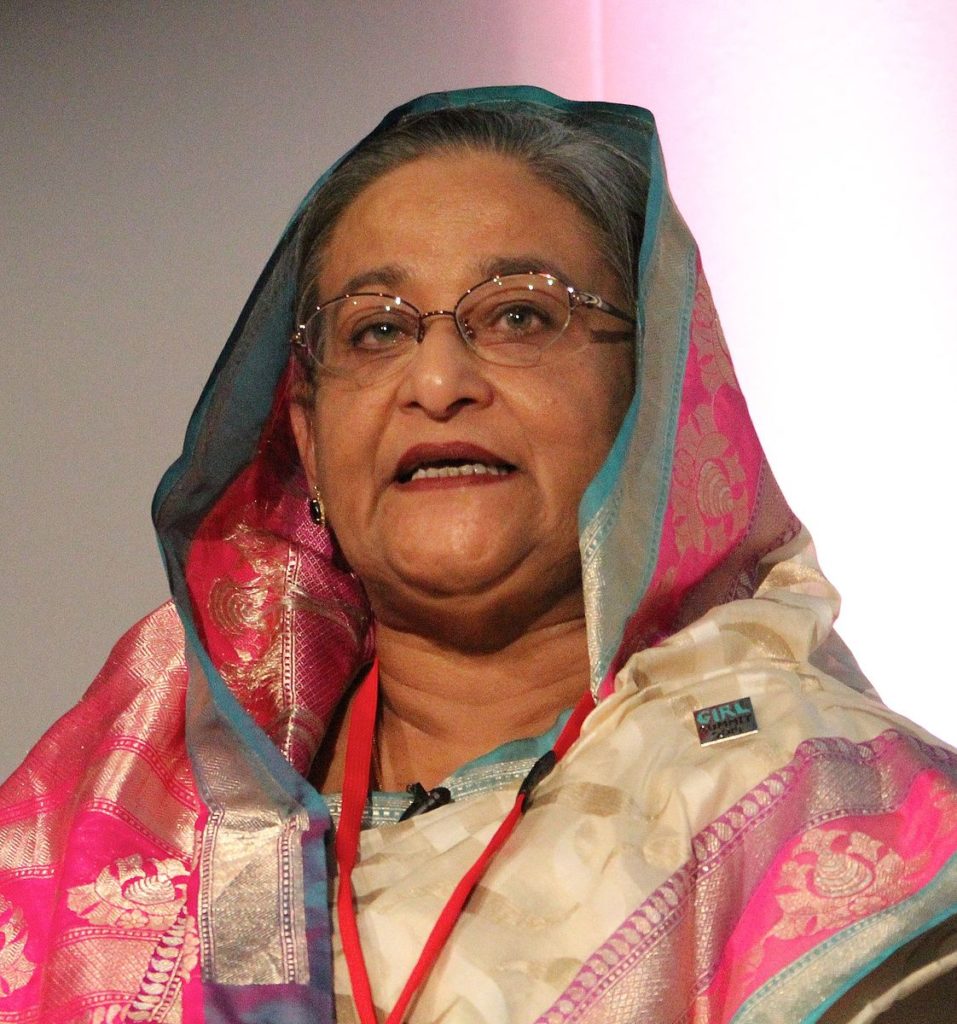Tulip Siddiq MP, the niece of disgraced ex Bangladesh leader Sheikh Hasina, has been named in court documents detailing claims that her family embezzled billions of pounds from a nuclear power project.
UK Economic Secretary Siddiq – who holds responsibility for financial crime and illicit finance – is alleged to have helped co-ordinate meetings with the Russian government regarding the Rooppur nuclear power plant project in Bangladesh.
In a court writ seen by media outlets, submitted to the High Court Division of the Supreme Court of Bangladesh, Ms Siddiq is named alongside her aunt, the former Prime Minister of Bangladesh Sheikh Hasina.
The documents cite an online news report from August and suggest Ms Siddiq received embezzled funds that came from the artificial inflation of construction costs of the power plant – which was mainly funded by the Russian government.
It’s alleged that $5bn (£3.9bn) was siphoned off from the project’s budget “in collusion with Russian officials.”
The legal claim has been made by Bobby Hajjaj, a political opponent of Sheikh Hasina.
Ms Siddiq, the Labour Party and the government have so far declined to comment.
Subscribe to our newsletter and stay updated on the latest news and updates from around the Muslim world!
But the PM’s official spokesperson said Ms Siddiq had “denied any involvement in the claims” of embezzlement and continued to maintain her responsibility as a minister overseeing UK anti-corruption efforts.
Meanwhile, the Bangladeshi Awami League Party – which Sheikh Hasina continues to lead – said the embezzlement claims are “fabricated.”
Sheikh Hasina
Hasina fled Bangladesh in August and resigned as Prime Minister after a total of twenty years in power.
Her departure followed weeks of deadly protests in the country and the new government has accused Hasina of multiple crimes while in office.
These include:
- The embezzlement of billions of pounds
- Siphoning funds to various countries and engaging in corrupt business deals
- Violent suppression of protests, including student-led movements
- Enforced disappearances and extrajudicial Killings
- Murder charges in relation to the deaths of protesters and others during her rule.
- Use of excessive force against opposition parties, leading to widespread human rights violations.
These accusations have led to multiple legal actions against her, including arrest warrants issued by Bangladesh’s International Crimes Tribunal for crimes against humanity, and various corruption probes by the Anti-Corruption Commission.
Hasina has sought refuge in India following her resignation amid widespread protests, which further complicates the legal proceedings against her.
Tulip Siddiq
Tulip Siddiq has served as a Member of Parliament (MP) for Hampstead and Highgate, previously Hampstead and Kilburn, since 2015.
She is a member of the Labour Party and currently holds the position of Economic Secretary to the Treasury and City Minister, a role she has occupied since July 9, 2024.
Siddiq was born on September 16, 1982, in Sutton, London. Her mother, Sheikh Rehana, is the younger sister of Sheikh Hasina, who was the Prime Minister of Bangladesh from 2009 until 2024.
Tulip Siddiq’s relationship with her aunt, Sheikh Hasina, the former Prime Minister of Bangladesh, has been a source of controversy and scrutiny, particularly in relation to political and ethical issues.
Upon her election as an MP in 2015, Siddiq mentioned learning about politics from Sheikh Hasina, indicating a deep personal influence from her aunt.

In 2018, Siddiq described Sheikh Hasina as a “great role model” for her daughter, despite international criticism of Hasina’s governance. This was part of a broader statement where she praised Hasina’s leadership qualities.
Siddiq was present during significant events linked to Sheikh Hasina, such as the signing of the Rooppur Nuclear Power Plant deal in 2013 with Russian President Vladimir Putin, which later became central to corruption allegations.
Siddiq has been criticised for not speaking out against alleged human rights abuses in Bangladesh during Hasina’s tenure. Critics argue that given her familial ties, Siddiq could have used her platform to address these issues but has largely remained silent or defensive when challenged.
There have also been discussions about how Siddiq’s political career might have been influenced by her connections to the Awami League, Sheikh Hasina’s party. Videos and reports have surfaced where Siddiq thanked Awami League supporters for their help in her election campaigns, suggesting a link between her political support in the UK and her family’s political power in Bangladesh.
Her responses to questions regarding Bangladesh’s political climate have sometimes been perceived as dismissive or evasive, particularly when it comes to her influence or lack thereof on Bangladeshi politics.























